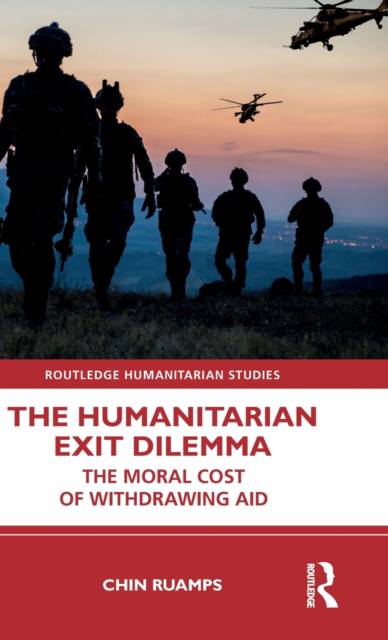
- Retrait gratuit dans votre magasin Club
- 7.000.000 titres dans notre catalogue
- Payer en toute sécurité
- Toujours un magasin près de chez vous
- Retrait gratuit dans votre magasin Club
- 7.000.0000 titres dans notre catalogue
- Payer en toute sécurité
- Toujours un magasin près de chez vous
Description
How should humanitarian organisations respond when their aid goes awry? Should they stay and remain engaged with the needy, or should they withdraw and leave? Investigating the choices involved and the judgements required when tackling these questions, this book explores the unique 'Humanitarian Exit Dilemma' that confronts humanitarian organisations.
Humanitarian practitioners often are too concerned with the outcome of action but fail to recognise that there are other equally weighty moral considerations they should consider. Focusing simply on the results of projects, such as the number of lives saved alone, is inadequate. To address this problem, this book highlights three value-based normative considerations, namely humanitarian aid workers' special relationships with those whom they are assisting, humanitarian organisations' causal responsibility to assist those they have made vulnerable, and humanitarian organisations' obligations to fulfil reasonable expectations of those assisted. Together, these three non-instrumental reasonings serve as the main arguments of the author's value-based normative account, the 'Non-Consequentialist Approach', to address the Humanitarian Exit Dilemma.
Offering a unique perspective on how humanitarian organisations should navigate the Humanitarian Exit Dilemma, this book will be of interest to scholars and practitioners in the field of Humanitarian Studies, African Studies, Refugee Studies, political philosophy, humanitarian action, and human rights.
Spécifications
Parties prenantes
- Auteur(s) :
- Editeur:
Contenu
- Nombre de pages :
- 142
- Langue:
- Anglais
- Collection :
Caractéristiques
- EAN:
- 9781032307954
- Date de parution :
- 21-04-23
- Format:
- Livre relié
- Format numérique:
- Genaaid
- Dimensions :
- 140 mm x 216 mm
- Poids :
- 331 g

Les avis
Nous publions uniquement les avis qui respectent les conditions requises. Consultez nos conditions pour les avis.






